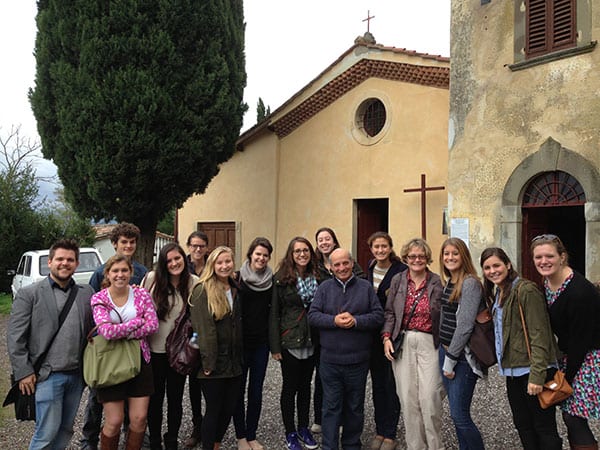January 30, 2014
Education majors add twist to study abroad by teaching English

By Liz F. Kay
Education majors at Providence College now can gain teaching experience while studying abroad in Italy or Ireland.
Nine elementary education majors attended the Department of Education’s pilot Education Semester in Florence, Italy, in 2012. Last fall, 11 students took classes and taught in Florence, while four others studied and taught in Belfast, Northern Ireland. A similar program is being developed in Nicaragua for Spanish speakers.
In Italy, the teachers-in-training work with instructors of English as a foreign language. The goal is to hone skills they will need to teach children whose first language is not English when they return.
“We feel like it expands their understanding of the world and prepares students for the diverse classrooms we have now,” said Dr. Laura Boynton Hauerwas, associate professor of education.
PC education students often teach in urban schools in Providence, Pawtucket, and Central Falls, R.I., with a large population of English language learners, said Dr. Lynne B. Ryan, professor of education and department chair.
“We’re really trying to help our students have a better global awareness,” Ryan said. “This afforded us another opportunity to make them more sensitive to the issues related to working with children who are linguistically and culturally diverse.”
“When they go abroad, they’re not the dominant culture anymore,” Ryan said. “That, in and of itself, has profound implications for them.”
Julianne Flannery ’14 (Wrentham, Mass.) said the experience of learning Italian while teaching English to Italian third-graders was “eye-opening.”
She encountered subtle cultural differences that surprised her, such as teaching her students that “thumbs up” meant yes. Afterward, “they looked at their thumbs like they had a special power.”
“It made it a lot easier to relate to these students — you could flip these roles,” Flannery said.





